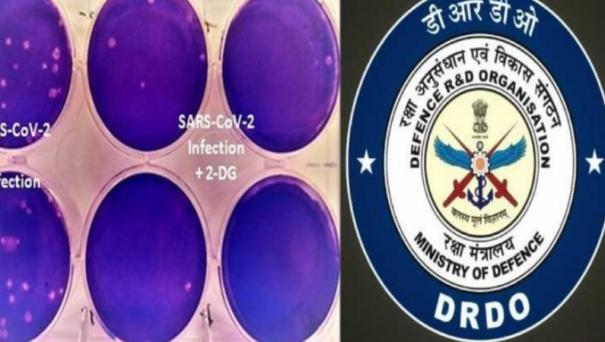
Union Defence Minister Rajnath Singh will distribute about 10,000 doses of an anti-coronavirus medicine produced by the Defence Research and Development Organisation (DRDO) to some hospitals in the national capital tomorrow.
The drug, known as 2-deoxy-D-glucose or 2-DG, was developed by a DRDO lab in partnership with Dr Reddy’s Laboratories, a Hyderabad-based pharma giant. The prescription has been authorised for emergency use by India’s highest drug regulator, the Drugs Controller General of India (DCGI).
The drug’s phase 2 and phase 3 clinical trials had shown positive results. In phase 2 trials performed between May and October last year, the drug was found to be effective for COVID-19 patients. It was discovered to be beneficial in reducing Covid patients’ reliance on supplemental oxygen and shortening their hospital stays.
According to the defence body, a kind of pseudo glucose molecule in the drug keeps the virus in its tracks.
The medication is used in powder form and can be taken with or without alcohol.
2-DG is one of the few treatments in the world that has been expressly engineered to treat COVID-19, and has no solution as of yet. To cure the lethal virus, doctors use a variety of new medications and treatments, including Remdevisir, Ivermectin, plasma therapy, and certain steroids.
Over the past few weeks, India has been reporting over 3 lakh coronavirus cases and thousands of deaths every day as the more deadly second wave of the virus has ravaged the world.
Several states have recorded reports of a terrifying secondary infection known as ‘Black Fungus,’ which has arisen amid the mayhem unleashed by the outbreak and compounded by shortages of drugs, hospital beds, and life-saving oxygen.
According to experts, fungal and bacterial infections are increasing the number of Covid-related deaths due to the abuse of steroids, which can reduce the body’s natural immunity.
“The overuse of steroids is a significant contributor to this outbreak. Diabetic patients, those who are Covid positive, and those who are on steroids have a higher risk of fungal infection. To avoid it, we must put an end to the abuse of steroids “On Saturday, AIIMS Director Randeep Guleria said.



